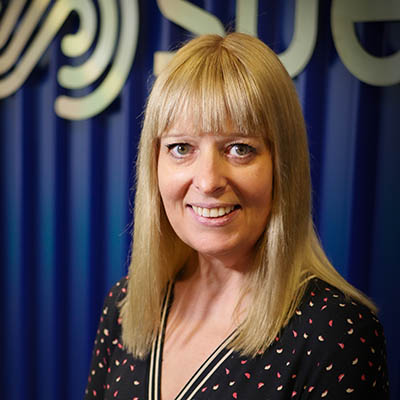Welcome aboard! The importance of effective onboarding for new employees

August is a time of transition. Not just in the educational cycle and seasons – as summer gives way to autumn. But also in the business environment. Most of us get back to work (hopefully, refreshed and energised) after annual holidays. August also tends to be a slightly quieter month when we can take time to reflect on the first half of the year and plan for the next, putting the final touches to new initiatives and tweaking strategies to propel the business forward through the autumn and into a new year.
As professionals, (and as parents), we understand the hard work and preparations required of all educational institutions as they welcome their new cohorts. We also appreciate how important this onboarding process is in making what’s a significant life change as smooth and seamless as possible for everyone involved – not least our own new recruits.
As with every critical business process, structure is crucial when inducting staff. That means not only a structure for managing the process, which has been carefully thought through, but also providing structure for the new recruits from day one.
But the process should start long before – as soon as a candidate accepts the job offer. Welcome communications and introductory information are reassuring for someone who is about to start a new chapter in their career. They also reinforce positive feelings about that decision to commit to a new job. Meanwhile, it is important that employers use the time to set up all necessary accounts and access – from payroll and email to benefits packages and policies – in readiness for their arrival.
First impressions
We all want to make a positive first impression when we join a new organisation or team. Employers too need to provide a warm and professional welcome. I think of children on their first day of school gripped by a mixture of excitement and nerves – feelings I’ve had myself when joining new organisations. Schools and teachers understand the need to provide a welcoming environment and clear structure to the school day.
Research seems only to confirm my view that first impressions colour people’s perceptions of their new employer. One survey found that only 12% of employees believed their company handled their onboarding well. If those negative impressions are reinforced when colleagues get down to work in the early days, the consequences are serious for employee and employer. A 2023 study found that 70% of new hires decided within a month whether their new job was a good fit or not. For 29% of those surveyed, that decision was made within the first week. Also, 44% had regrets or second thoughts about their new role by then.
A full agenda
Our recruits know what to expect in their first week from the agenda we send them setting out how they will be introduced to their new team, the organisation, and our culture. Back in April this year we updated our induction procedure to enhance the onboarding experience, based on the feedback we encourage from our new people.
There is a lot of ground to cover in that first week. As we have refined our business strategy and fostered an inclusive culture, there are many initiatives and aspects of our company to share. Also, we have a statutory duty to explain and train people in line with policies in areas such as modern slavery.
We don’t want the experience to be overwhelming, so we balance our daily induction agenda through the week, taking pains to ensure that we don’t bombard people with too much information and the sessions are as engaging as possible.
Meet the team
It’s important – before navigating those wider aspects of the role – to begin with what matters most to people about their job. Our relations with colleagues are one of the biggest factors in job satisfaction. Many friendships are made at work and getting along with colleagues – and ideally, your line manager – is a priority or concern for most new employees. So, inductions begin on site with your new line manager and introductions to the team. Afterwards, we provide an overview of the company and the opportunity to meet the senior leaders in our OpCom (UK Board).
Each day of our induction week involves a blend of briefing and training covering software tools and systems used in the job and bigger-picture themes, including ethics and diversity, and the diverse business activities of SUEZ.
Two elements are fundamental. We encourage new colleagues to buy in to our proactive health and safety culture from the outset and help them develop an understanding of the wider issues surrounding environmental and industrial risk in our sector. The SUEZ commitment to sustainability and social value is also central to our company ethos and helps give colleagues an added sense of purpose in their jobs.
Ongoing support
The onboarding process doesn’t end there. Among the main frustrations voiced by new hires in the research by recruiters is not being sure who can answer their questions; others include inadequate training about company products or services, and technology issues.
This is why continuous support, feedback and evaluation are essential. Regular check-ins and feedback sessions are needed to ensure that new employees have ample opportunities to voice concerns and ask questions. How those questions are answered will affect how they settle into their new roles. The topics raised also inform our ongoing refinement of the onboarding process and other company policies designed to make SUEZ a rewarding place to work.
These include buddying and mentoring schemes, a comprehensive programme of training and development, the various employee groups within our diversity and inclusion network, an expanding employee assistance and benefits package, and opportunities to volunteer for good causes and contribute to the company’s social value generation.
Finding your feet in any new environment takes time and can seem daunting. Spare a thought for those newbies on the first day of school, college or university over the coming weeks, but also extend a helping hand to your new colleagues so that in those first few days – when they naturally keep asking themselves whether they’ve made the right decision – the answer is a resounding “yes”.
